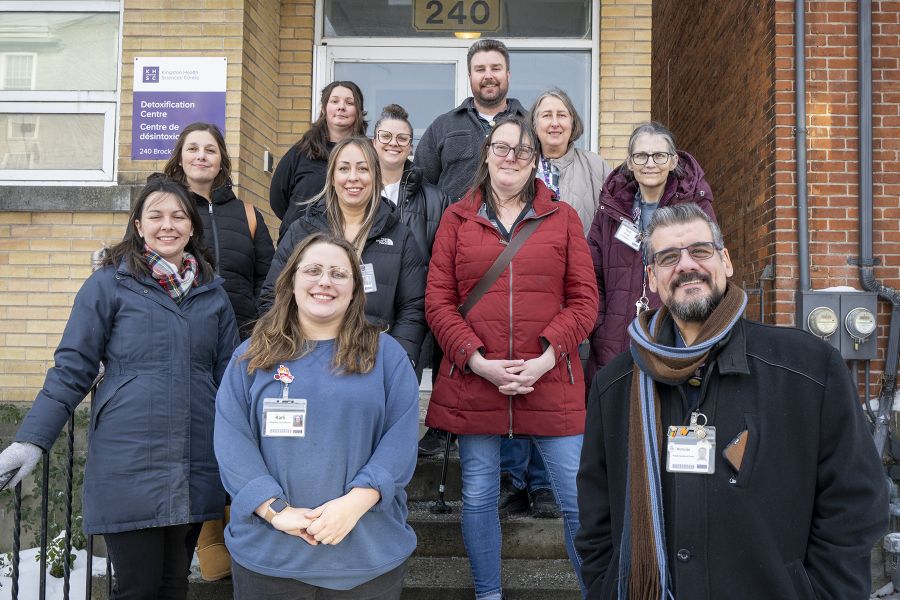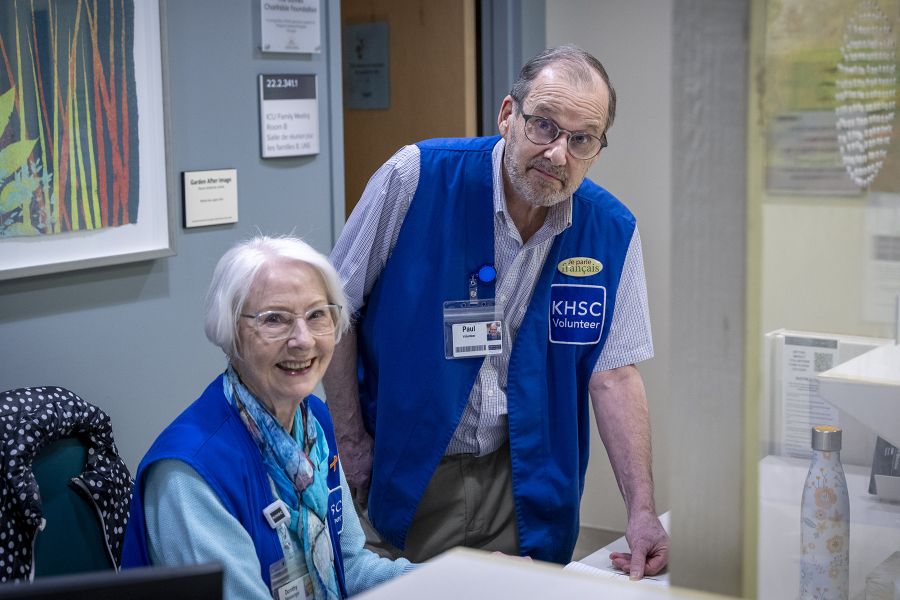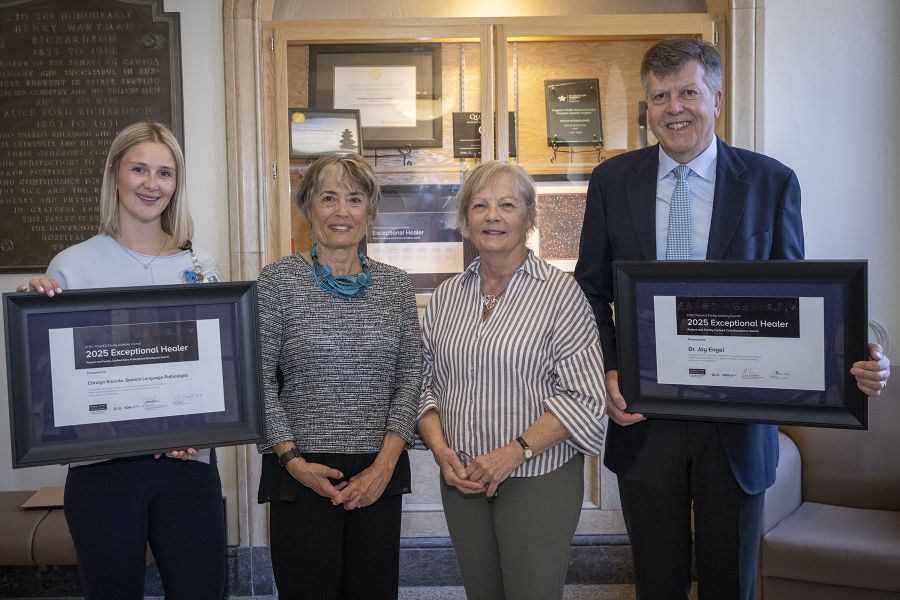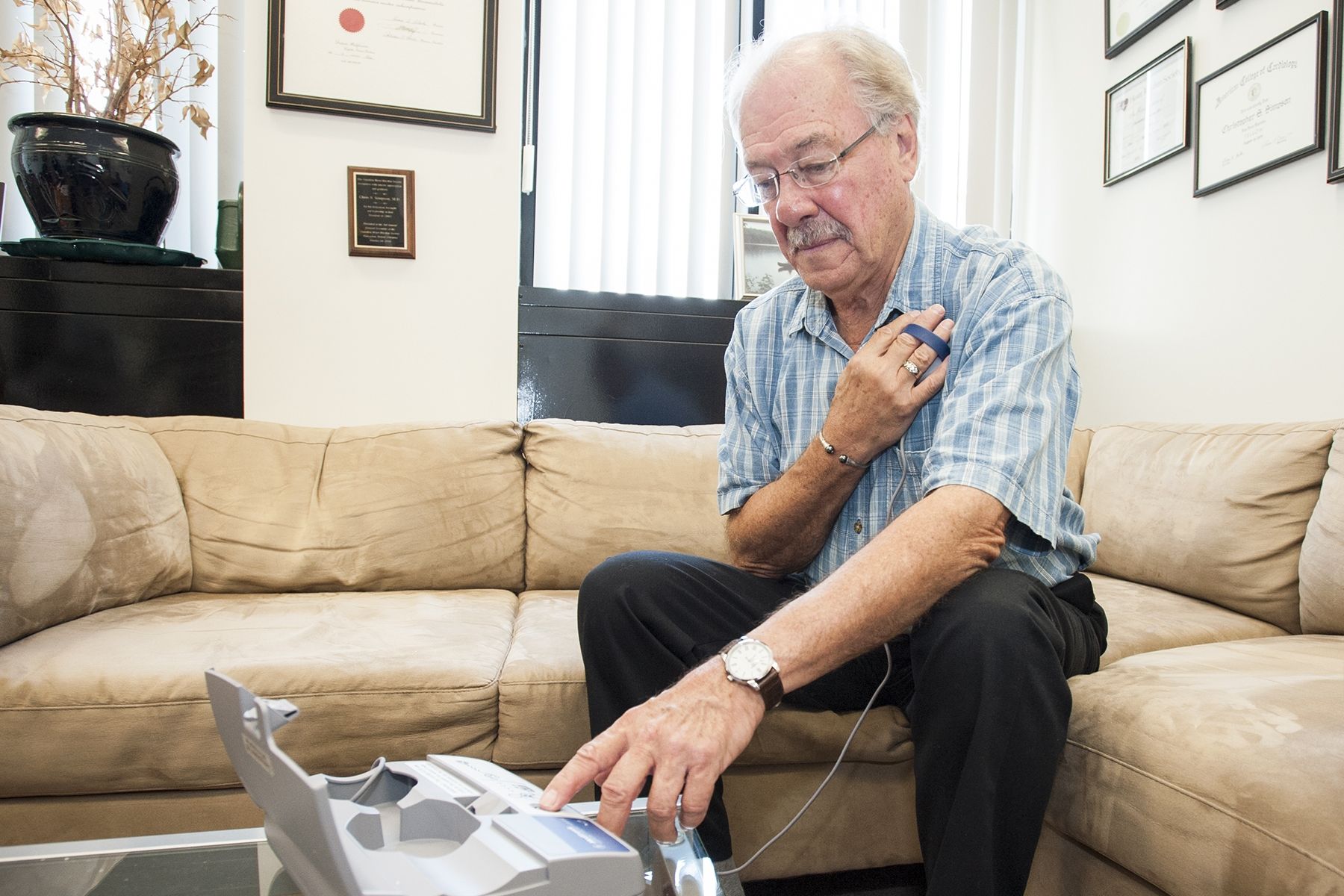
Patients with implanted defibrillators and pacemakers are benefitting from technology that reduces the number of times they have to come to the hospital for treatment. A remote monitoring system called Medtronic CareLink went live at Kingston General Hospital this month. Now, more than 40 patients are wirelessly connected to their care teams at our hospital.
"We had over 7,200 clinic visits and teleconferencing appointments last year," says Debra Campbell, Nurse Coordinator for the Cardiac Rhythm Device Clinic. "What this new system allows us to do is provide continuous services to our patients and monitor their condition without scheduling as many appointments or phone calls."
Once a patient signs up for the CareLink program at our hospital, they receive a base station in the mail. After the station is plugged into a phone line, it wirelessly reads data from the patient's Implantable Cardioverter Defibrillator or pacemaker as they walk around their home. That data is then sent through the phone lines to a secure server that is accessed by their care team back at KGH, allowing the team to monitor the patient's information, all the way down to their device's battery supply. If the monitor detects anything unusual, the patient will be alerted and called in for an emergency appointment.
"The great thing about this new technology is that it's entirely focused on convenience for the patient," says Cliff Edwards, a KGH Patient Experience Advisor who just received his own monitoring system. "I'm very excited to be part of this new process. Now I don't have to change my daily routine and suddenly I have fewer trips in to the clinic from my home in Gananoque."
And similar benefits have been experienced by other patients, says Campbell.
"This is especially helpful for some of our younger patients who work full-time and are always on the move," she says. "The system works as long as it gets a read from the implanted device every three days, so our patients are able to go about their business and let the system do the talking."
Moving forward, KGH's Cardiac Rhythm Device Clinic is hoping to have as many patients as possible on the CareLink system, creating the best care possible for a growing number of patients.
"This is already changing the way we do business, and in the future we'll be seeing more people receive care from home," says Campbell. "But we know that many patients still like face-to-face interaction, and that will always be part of what we do here. Providing care in a way that works for them is what's most important, whether it's with the latest technology, or the most familiar staff."
Gallery
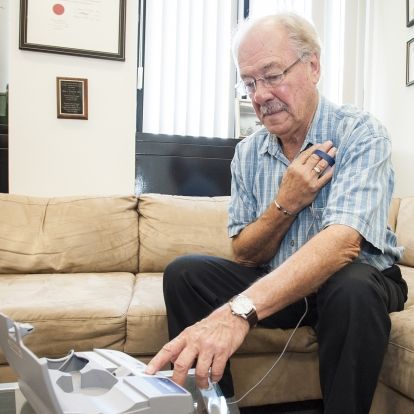
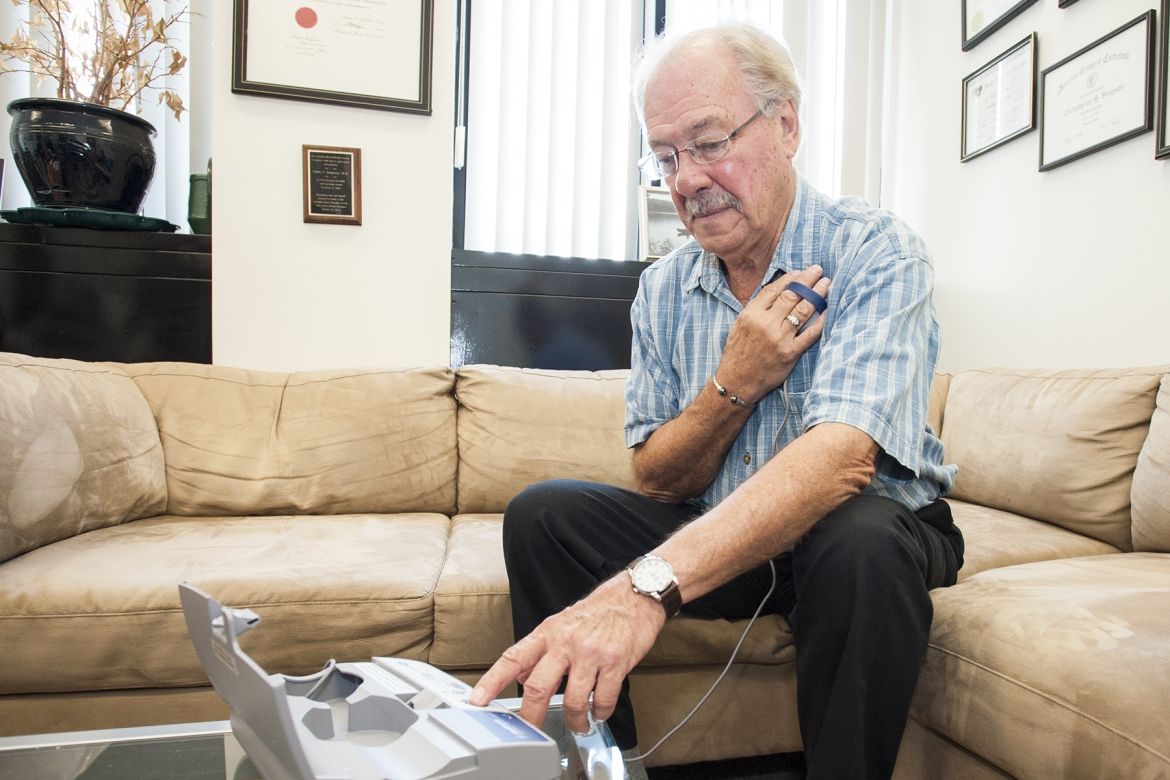
Cliff Edwards, a KGH Patient Experience Advisor tries out the Carelink system.

